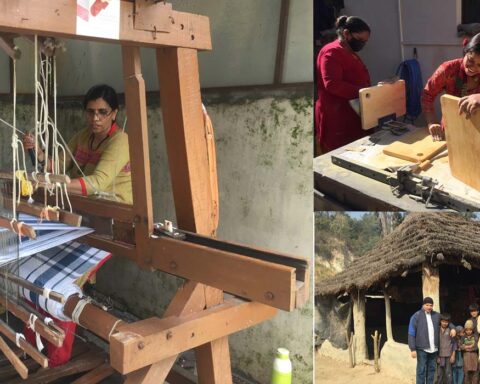Showing more emotions at work could result in increasing the morale of the office staff in the present-day hybrid world of work, with 87 per cent of the working staff saying that it helped increase their productivity and their sense of belonging.
LinkedIn, the world’s largest online professional network, has released new research that uncovers the shift in how professionals are expressing themselves at work. Based on a survey of 2,188 professionals, the research reveals that more than three in four (76 per cent) professionals in India feel more comfortable expressing their emotions at work post-pandemic. This shift is also being reflected on LinkedIn, which has seen a 28 per cent rise in public conversations on the platform.
Emotions are now ‘professional’
Showing more emotions at work could be the secret to better staff morale in this hybrid world of work, with almost nine in 10 (87 per cent) professionals agreeing that doing so makes them more productive and boosts feelings of belonging. Emotions are now ‘professional’, but seven in 10 workers say there is still a stigma associated with it.
Professionals in India are not holding back with their emotions and are becoming more vulnerable, with nearly two-thirds (63 per cent) admitting to having cried in front of their boss—a third (32 per cent) having done so on more than one occasion, the research points out. However, as India warms up to expressing at work, seven in 10 (70 per cent) professionals here believe there is a stigma around sharing feelings at work. Due to this, over a quarter of professionals in India are still worried about wearing their hearts on their sleeves out of a fear of looking weak (27 per cent), unprofessional (25 per cent) and being judged (25 per cent).
Unfairly, women are bearing the brunt more, with almost four in nine (79 per cent) professionals in India agreeing that women are often judged more in comparison to men when they share their emotions at work. Gen Z (73 per cent) and millennials (79 per cent) are leading the way in expressing themselves and feeling more comfortable than ever opening up at work. In comparison, just 20 per cent of boomers (aged 58-60) share the same comfort with expressing themselves at work.
Gen Z (41 per cent) and millennials (47 per cent) have felt the benefits of flexible working too, as they agreed that it had encouraged them to open up more often in front of their colleagues. In fact, Gen Z (62 per cent) and millennials (69 per cent) are also seeing a stronger response from their online community, with around two-thirds saying they received more support when they opened up on LinkedIn.
Three in five professionals in India want more humour at work. Over three-quarters, (76 per cent) of professionals in India agree that “cracking a joke” at work is good for office culture, but more than half (56 per cent) consider it to be ‘unprofessional’. Despite these mixed feelings, nine in 10 (90 per cent) professionals in India agree that humour is the most underused and undervalued emotion at work. In fact, more than three in five (61 per cent) professionals want to see the use of more humour in general at the workplace.
Overall, professionals in South India are cracking the most jokes in the country, with over two in five (43 per cent) doing so at least once a day, followed by professionals in the western (38 per cent), eastern (37 per cent), northern (36 per cent) and north-eastern (33 per cent) parts of the country.
Indian Workers: Funniest in the World
Around the world, Indian and Italian workers come out on top as the funniest workers globally, with over a third (38 per cent), respectively, cracking a joke at least once a day. Australian workers (29 per cent) emerged as the least funny, even when compared to Germans (36 per cent), Brits (34 per cent), Dutch (33 per cent) and the French (32 per cent).
Keeping up with the shifts in the type of conversations that are now happening in the world of work, LinkedIn is launching a funny reaction to allow members to express humor and fun on the platform. This adds to the existing gamut of reactions that LinkedIn introduced in 2019 to help members visually express their sentiments on posts and articles. The funny reaction has been rolled out globally today.
Ashutosh Gupta, India Country Manager, LinkedIn, said, “The past two years have been tumultuous to say the least, but have also made people realise that they can be more vulnerable and candid with each other at work. This has become more apparent on LinkedIn, where people are not just talking shop, but also expressing how they take care of themselves by setting new boundaries and balancing life with work. With humor at the heart of self-expression, our new funny reaction will allow members to express joy in response to a post or comment. This has been one of the most requested features from our members, and we’re excited to see how our laughing emoji will help them show their humorous sides at work, and on LinkedIn.”


























